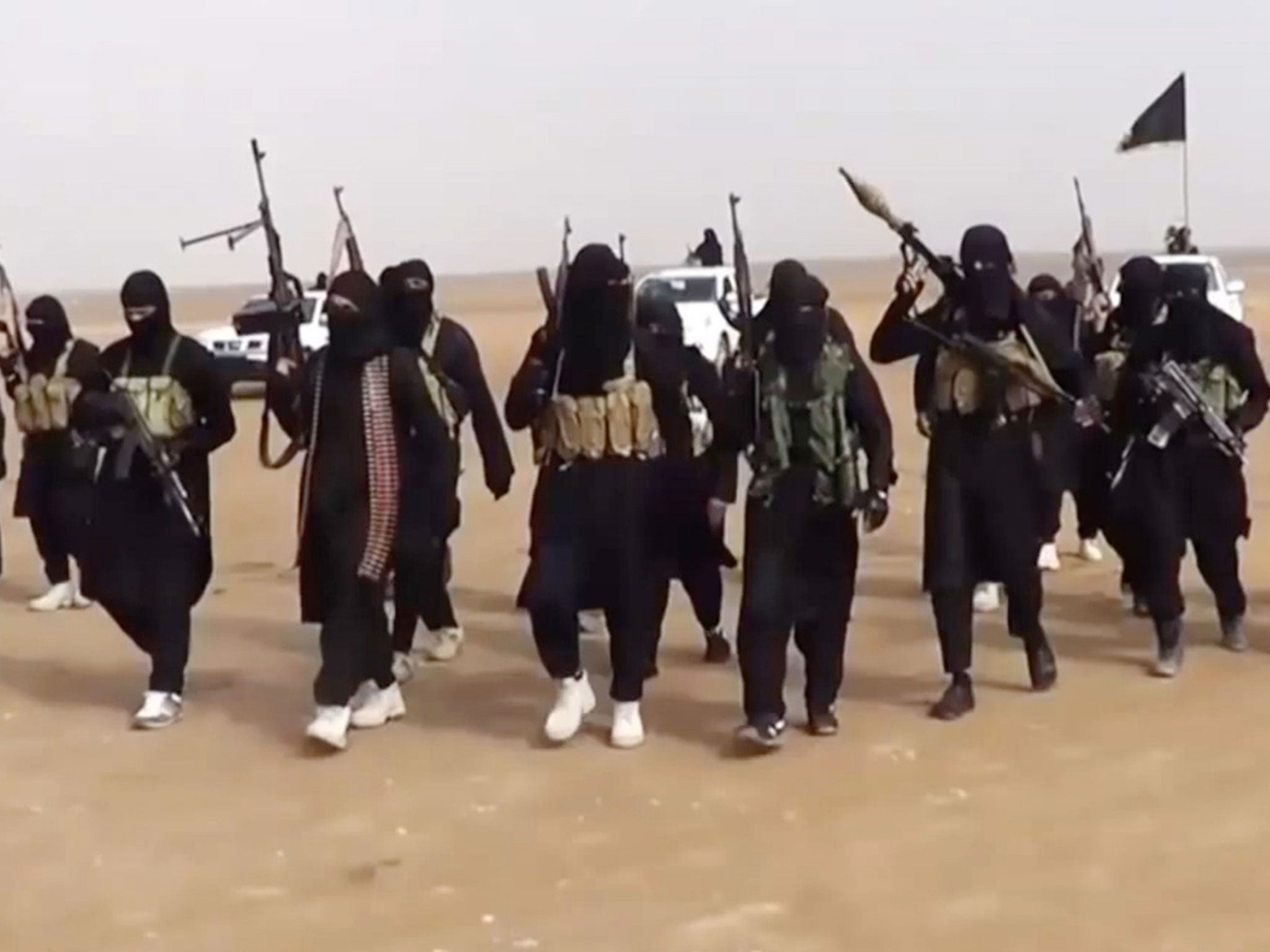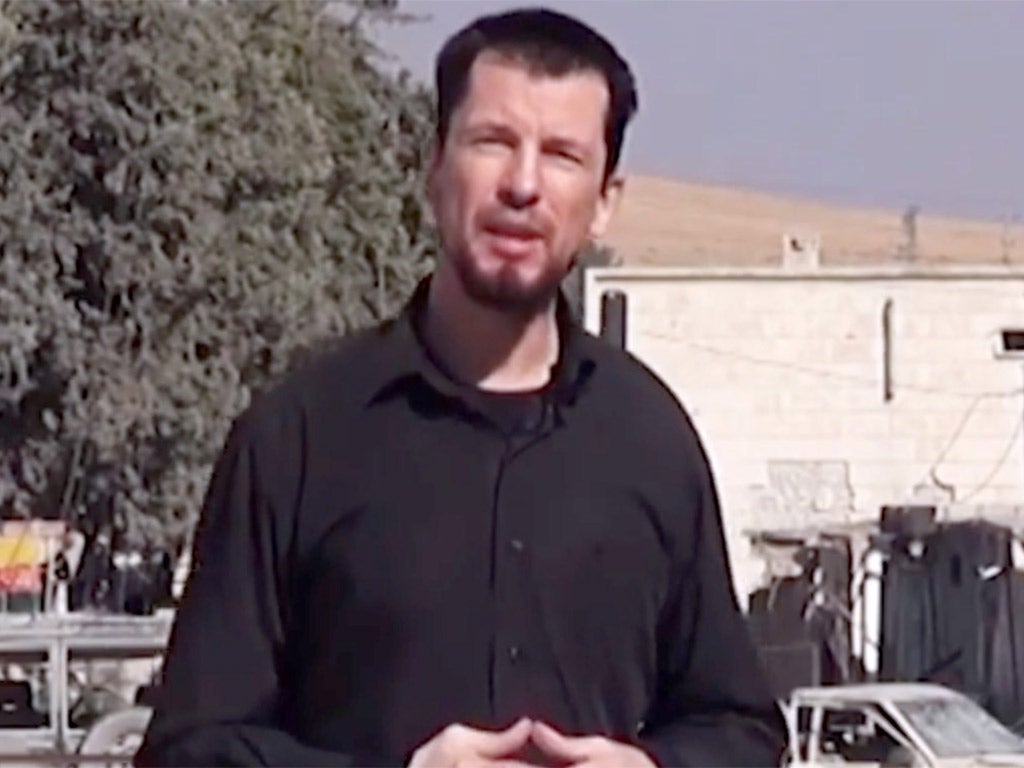Isis claims it could buy its first nuclear weapon from Pakistan within a year
'We're looking to do something big, something truly epic'

Your support helps us to tell the story
From reproductive rights to climate change to Big Tech, The Independent is on the ground when the story is developing. Whether it's investigating the financials of Elon Musk's pro-Trump PAC or producing our latest documentary, 'The A Word', which shines a light on the American women fighting for reproductive rights, we know how important it is to parse out the facts from the messaging.
At such a critical moment in US history, we need reporters on the ground. Your donation allows us to keep sending journalists to speak to both sides of the story.
The Independent is trusted by Americans across the entire political spectrum. And unlike many other quality news outlets, we choose not to lock Americans out of our reporting and analysis with paywalls. We believe quality journalism should be available to everyone, paid for by those who can afford it.
Your support makes all the difference.Isis has used the latest issue of its propaganda magazine Dabiq to suggest the group is expanding so rapidly it could buy its first nuclear weapon within a year.
The hyperbolic article, which the group attributes to the British hostage John Cantlie, claims Isis has transcended its roots as “the most explosive Islamic ‘group’ in the modern world” to evolve into “the most explosive Islamic movement the modern world has ever seen” in less than twelve months.
Photojournalist Cantlie is regularly used in the terror group’s propaganda and has appeared in a number of videos, including a YouTube series called "Lend Me Your Ears". He has been held a hostage by Isis for more than two years.

The piece, entitled "The Perfect Storm", describes militant Islamist groups such as Boko Haram, which recently pledged allegiance to Isis, uniting across the Middle East, Africa and Asia to create one global movement.
The article claims this alignment of groups has happened at the sane time as Isis militants have seized “tanks, rocket launchers, missile systems, anti-aircraft systems,” from the US and Iran before turning to the subject of more extreme weapons the group is not in possession of - such as nuclear weapons.
“Let me throw a hypothetical operation onto the table,” the article continues. “The Islamic State has billions of dollars in the bank, so they call on their wilāyah in Pakistan to purchase a nuclear device through weapons dealers with links to corrupt officials in the region."
It admits that such a scenario is “far-fetched” but warns: “It’s the sum of all fears for Western intelligence agencies and it’s infinitely more possible today than it was just one year ago.
"And if not a nuke, what about a few thousand tons of ammonium nitrate explosive? That’s easy enough to make."
An attack launched by Isis against America would ridicule "the attacks of the past".
"They’ll [Isis] be looking to do something big, something that would make any past operation look like a squirrel shoot, and the more groups that pledge allegiance the more possible it becomes to pull off something truly epic.
“Remember, all of this has happened in less than a year. How more dangerous will be the lines of communication and supply a year on from today?”
The capacity of Isis to acquire such a device is certainly beyond the group at the moment.
But Isis is indeed a well funded group having secured a number of oilfields in Syria and Iraq. The group also sells artefacts looted from historic areas seized during its insurgency, sometimes for six figure sums, as well as imposing taxes on civilians trapped in its self-declared caliphate and other methods of extortion.
The finances of the group have been estimated by some to be in the $2billion area, though it is impossible to verify how much money it actually has access to.
The threats come against a mixed backdrop of successes and losses in both countries; the group has been driven out of Tikrit in Iraq but has overrun Ramaldi and the Syrian ancient city of Palmyra.
A recent call to arms from its leader Abu Bakr al-Baghdadi also appeared to suggest it may be overstretched in some areas, with his speech urging supporters from across the world to travel to its territories in the Middle East.
In September last year, the Home Secretary, Theresa May, warned that the militant group could become the world's first "truly terrorist state".
“We will see the risk, often prophesied but thank God not yet fulfilled, that with the capability of a state behind them, the terrorists will acquire chemical, biological or even nuclear weapons to attack us," she said.
Join our commenting forum
Join thought-provoking conversations, follow other Independent readers and see their replies
Comments